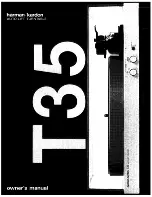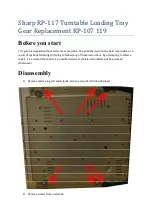
VT-TABLET-5081G User Manual
-20 Notice
Considering that reasonable efforts have been made to assure accuracy of this manual,
Vantron assumes no responsibility of possible missing contents and information, errors in
contents, citations, examples, and source programs.
Vantron reserves the right to make necessary changes to this manual without prior notice.
No part of this manual may be reprinted or publicly released in forms of photocopy, tape,
broadcast, e-document, etc.
FCC RF Exposure Information and Statement
This device meets the government's requirements for exposure to radio waves.
The guidelines are based on standards that were developed by independent
scientific organizations through periodic and thorough evaluation of scientific studies. The
standards include a substantial safety margin designed to assure the safety of all
persons regardless of age or health. The SAR limit of USA (FCC) is 1.6 W/kg
averaged. Device types: Tablet (FCC ID: 2AAGE5081G) has also been tested against this
SAR limit. SAR information on this and other pad can be viewed on
‐
line
at http://www.fcc.gov/oet/ea/fccid/. Please use the device FCC ID number for search. This
device was tested simulation typical 0mm to body. To maintain compliance with FCC RF
exposure requirements, the use of belt clips, holsters and similar accessories should not
contain metallic components in its assembly, the use of accessories that do not satisfy these
requirements may not comply with FCC RF exposure requirements, and should be avoided.
FCC Warning
This device complies with Part 15 of the FCC Rules. Operation is subject to the
following two conditions:
(1) This device may not cause harmful interference, and (2) this device must accept any
interference received, including interference that may cause undesired operation.
NOTE 1: This equipment has been tested and found to comply with the limits for a
Class B digital device, pursuant to part 15 of the FCC Rules. These limits are designed to
provide reasonable protection against harmful interference in a residential installation. This
equipment generates, uses and can radiate radio frequency energy and, if not installed and
used in accordance with the instructions, may cause harmful interference to radio
communications. However, there is no guarantee that interference will not occur in a
particular installation. If this equipment does cause harmful interference to radio or
television reception, which can be determined by turning the equipment off and on, the user
is encouraged to try to correct the interference by one or more of the following measures:


































